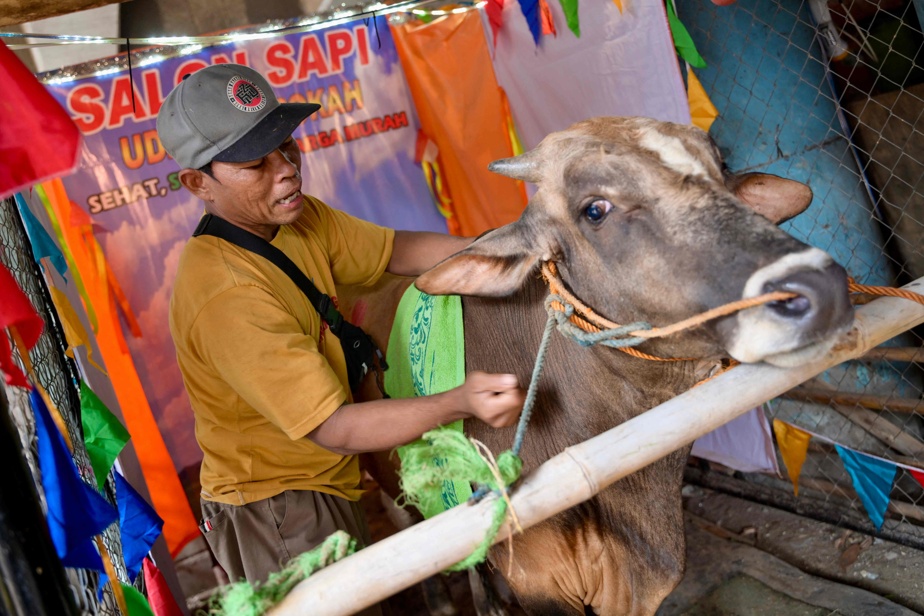(Jakarta) Installed under a highway in Jakarta, in his “massage parlor for cows”, Sumarwan hits the legs of a brown heifer with his fists in order to prepare it as best as possible before the sacrifice of the Muslim festival of Eid.
“If I pat it with my hands like that, the cow feels relaxed, because it knows that I do it with love,” the 45-year-old man, who like many Indonesians, only wears one name.
The two-year-old animal must present itself in its best light to be sold for the sacrifice of Eid al-Adha, also called Eid el-Kébir, which falls on Tuesday in Indonesia.
Sumarwan claims to be one of only two practicing these cow massages, in a district in the north of the Indonesian megalopolis. The punches they give the animal seem violent, but according to him, the cow has his confidence.
“If other people do it, the cow may get angry because it feels like it’s hurt,” he says.
On a cow that appears to be in poor health, Sumarwan applies a balm usually reserved for humans to speed up its healing.
“One of the conditions required for a cow to be sacrificed is that it be in good health,” adds the “massager”.
Her pet massage parlor is nestled in an underpass that has become a makeshift livestock market, where hundreds of cows and goats are traded.
As trucks and trailers speed by on the highway above, the animals seem unbothered.
Despite the deafening traffic, Sumarwan considers the location ideal, protected by the viaduct from Jakarta’s tropical heat and heavy rains.
Sumarwan’s boss, Kastono, has been running his business for 15 years, transporting cattle from Central Java to sell in Jakarta.
“This year we transported 50 cows and 120 goats. We usually start selling them 25 days before Eid al-Adha,” says Kastono, who employs 10 workers.
A 250 kilo cow can be traded for between 20 and 27.5 million rupees (between 1,600 and 2,200 dollars), says Meta, his wife.
To raise awareness and boost sales, Meta explains that it posted short videos on social networks to show cows being massaged in a small cabin with a “cow lounge” sign in the background.
“We want to attract customers with something unique, and also show that we treat animals well,” she says.
But making money is not their only concern, she assures: “What we do is linked to religious ritual, so making big profits is not our primary motivation. We don’t want to put a greater burden on people.”
“We run this (massage) parlor for cows […] because we want to make sure they are in good shape,” she concludes.




